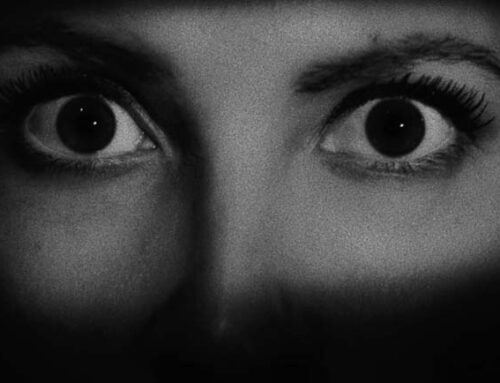Alice (Keke Palmer) is a slave living on a plantation in Georgia under the cruel watch of Paul Bennet (Jonny Lee Miller). Paul, the sadistic, evil owner, assaults Alice and the various other slaves that work on the plantation without second thoughts or remorse. After a particularly brutal series of assaults, Alice fights back and is able to escape his clutches. There is a big surprise in store for Alice, however, when she emerges from the woods and discovers that it is actually the year 1973. She is rescued from the middle of the road by the kindly truck driver Frank (Common), who takes her in and helps her navigate her new world. From there, Alice works to discover the origins of her captivity and to set things right.
Alice is an extremely high concept film with mixed execution. It’s a story that has something of an identity crisis, not always sure if it’s an indie art movie or a low-down grindhouse revenge story. Early scenes on the plantation tend to lean towards the more pondersome side of things. Shots of the surrounding trees and wildlife serve some higher purpose, although what that purpose is isn’t immediately clear. When Alice finally emerges from the woods and into 1973, a lot of the art house aesthetic disappears in favor of a more 70’s vibe, the time period Alice most heavily draws from. The uneven tone can be frustrating at times, as it isn’t always clear what the audience is watching. Alice held the promise of a fun throwback to the days of vengeance-driven plot lines with cool, strong black female leads. Shaping the entire story around that conceit, rather than a third of it, would have made this a fun, thrilling ride.
The story moves at a slow pace. We spend a large amount of time on the plantation, where it’s hammered down our throats how awful it is in such a place. Once Alice starts to discover and empower herself, the movie is almost over. Watching Alice transform through encyclopedias, important news paper clippings, and Pam Grier movies could have been the most compelling part, but it is quickly rushed through to get to the final confrontations. More time spent watching Alice’s character arc would have been interesting and made for a more compelling movie.
The performances from the two leads, Keke Palmer and Common, are fantastic. Palmer is at turns vulnerable and scared, commanding and unflinching. She is entirely convincing in portraying Alice’s transformation, and it’s a joy to watch. Giving Palmer more time and space to explore this character and fully flesh her out would have been even more tremendous to watch. Common is solid in his role, the calm, cool, comforting presence we have come to expect of the veteran actor. They make the movie worth watching despite its biggest stylistic and narrative flaws.
The final scene in the movie is a tease, a brief glimpse into what Alice could have been. It’s a cool moment, with Keke Palmer filling the screen and daring you to look away. Fully committing to a grindhouse tone and story wouldn’t have necessarily lessened the important message that writer/director Krystin Ver Linden attempted to deliver here. Instead, it could have evened out an uneven story and made for a one really fun throwback with two really talented lead actors.
4 out of 10
| Alice | ||
| RATING: | NR | Alice | Official Trailer | In Theaters March 18 |
| Runtime: | 1 Hr. 40 Mins. | |
| Directed By: | ||
| Written By: | ||







